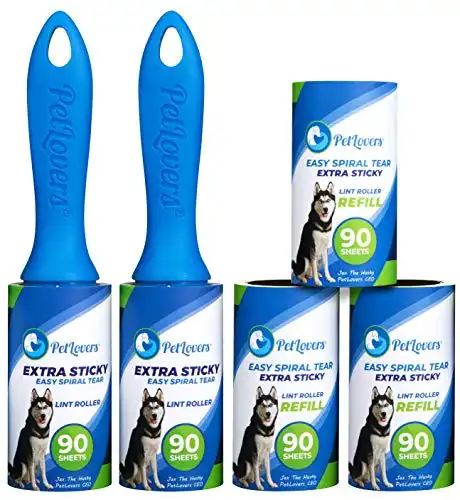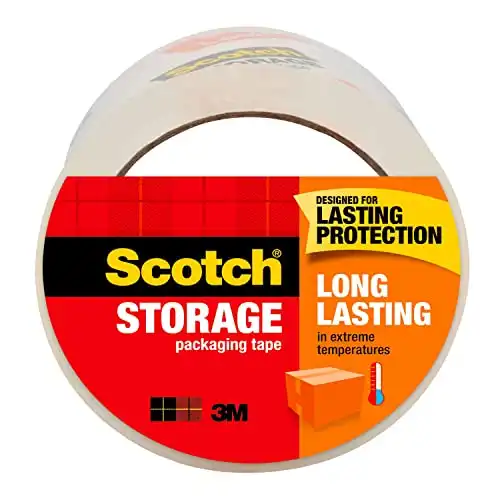5 Actually Good Ways to Get Dog Hair Out of Clothes
We love our dogs and are happy cleaning up after them, but geez, during shedding season, those tufts of fur can wreak some serious havoc. If you have a dark-colored dog, it is unlikely you will get away with wearing a white shirt, and if you have a white Husky, good luck with trying to wear dark clothes without looking like a Yeti.
Sure, a little bit of hair is nothing to devoted dog parents. However, it might not be that fun for others with pet allergies when you head out with all that dead fur sticking out in tufts on your clothes. In addition, fishing clumps of dog hair out of your washing machine on laundry day might get tiresome after a bit.
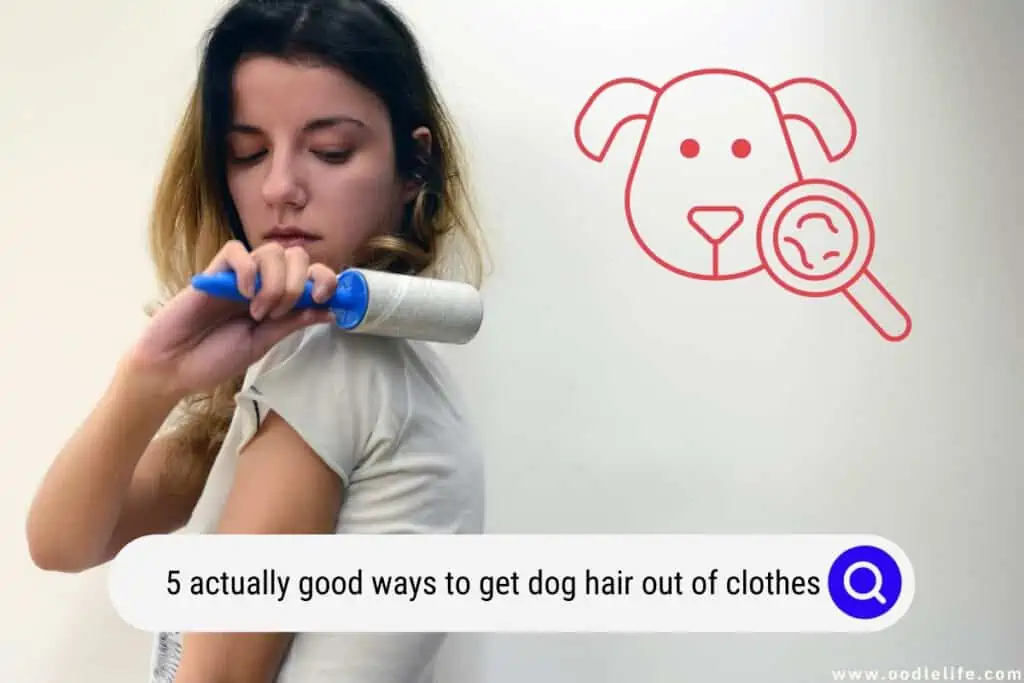
You aren’t alone. Millions of people have dogs that shed heavily. In this blog post, we’ll look at some hacks that you can do to keep the dog hair off your clothes and make living with a furball more manageable.
Remove The Hair Before Doing Your Laundry
Before chucking your fur-laden clothes into the laundry and clogging your machine, you might want to remove some of the fur first. Don’t dump them straight into the washing machine as the clumps of hair can damage your appliances.
Here are some ways to minimize the amount of fur on your clothes before laundry day.
1. Sponge
An old, dry sponge can scrape dog hairs off fabric before it goes into the laundry basket. If the hairs are sticking, dampen the sponge a little.
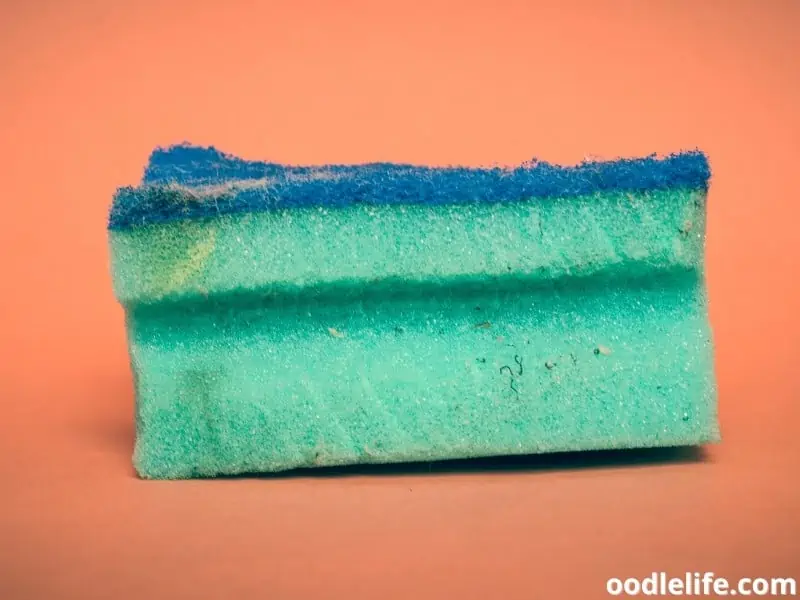
2. Lint Roller
If you don’t have a sponge, you may consider using a lint roller. A lint roller works to remove dog hair from your clothes, the same way a tongue scrapper works to remove dirt from your tongue. For a more effective scrape, you may consider softening the fabric first with a static guard and then using the lint roller to get the hair out.
- Your sticky roller pack includes two lint rollers and three additional refills featuring our spiraled easy-peel sheets for a total of 450 sheets. We've continuously revised, updated, and now...
- Our Canine Executive Officer Jax the Husky graciously shed plenty of hair to evaluate and make sure our extra sticky adhesive effectively picks up pet hair. Besides pet hair removal, our sticky roller...
- Our handle was designed for effortless 360° rotation back and forth for a frustration free rolling experience. There's no need to be concerned with or ease of use or about rolling in a specific...
- With PetLovers extra sticky adhesive, your lint roller doubles as a grooming tool that noticeably removes more hair, dust, and lint from your pets, furniture, clothing, and carpet.
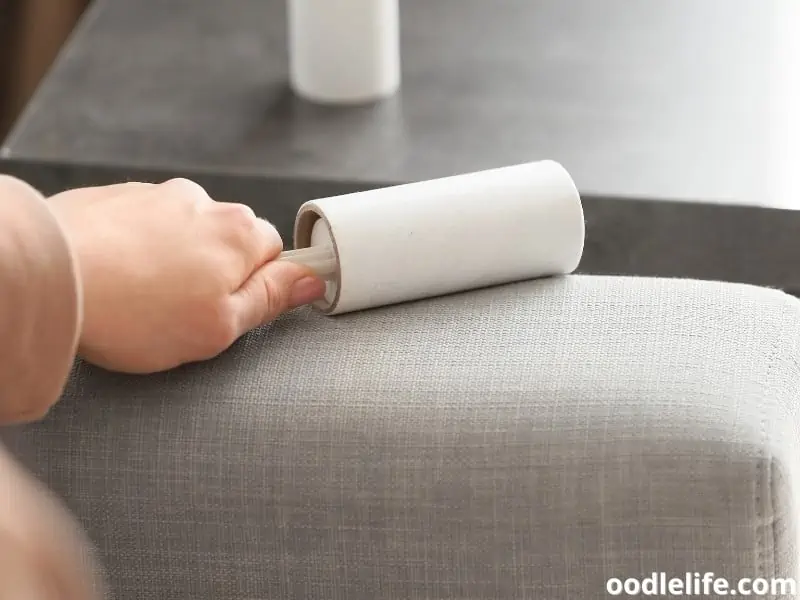
3. Handheld Steamer
This works great with delicate fabrics that have heaps of dog hair. The steamer loosens the fabric and dampens it. Once the fabric is loosened, a good shake will be all it takes to get the hair out.
If you still find hair on your fabric after using a steamer, you may use a fabric brush, a sponge, or a lint roller to remove what’s left.
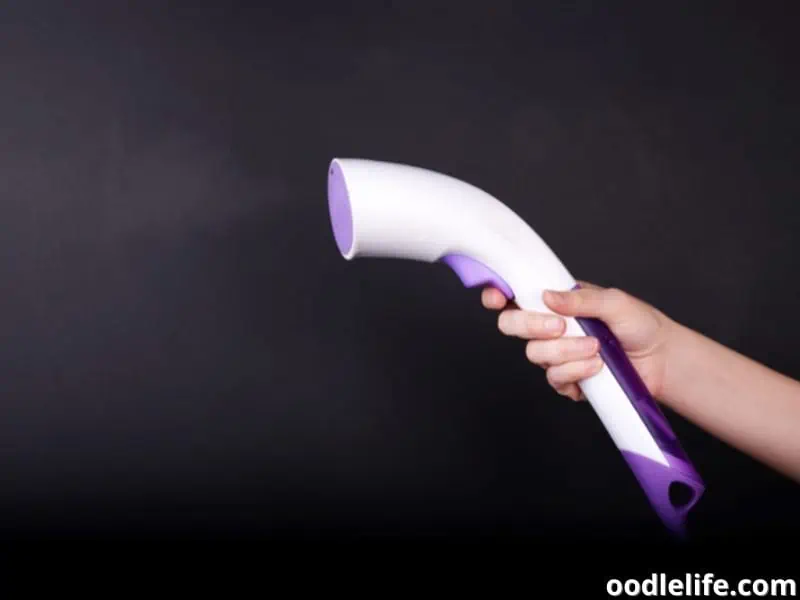
4. Masking Or Packing Tape
Stubborn hair that refuses to relinquish its hold on your clothes can be removed with a roll of masking tape. This inexpensive and readily available tool can quickly and effectively remove fur without damaging the fabric underneath.
Simply press the tape firmly against the fur and then peel it away. The fur will adhere to the tape, leaving the surface clean and fur-free. For best results, use a new piece of tape for each stroke.
- Strong, secure, solvent-free acrylic adhesive
- Designed for lasting protection
- Stays sealed in weather extremes (-25 degrees F to 160 degrees F)
- UV-resistant adhesive
- Clear to the core
You can also use masking tape to remove pet fur from hard surfaces like floors and walls. Just be sure to use a gentle touch so you don’t damage the surface.
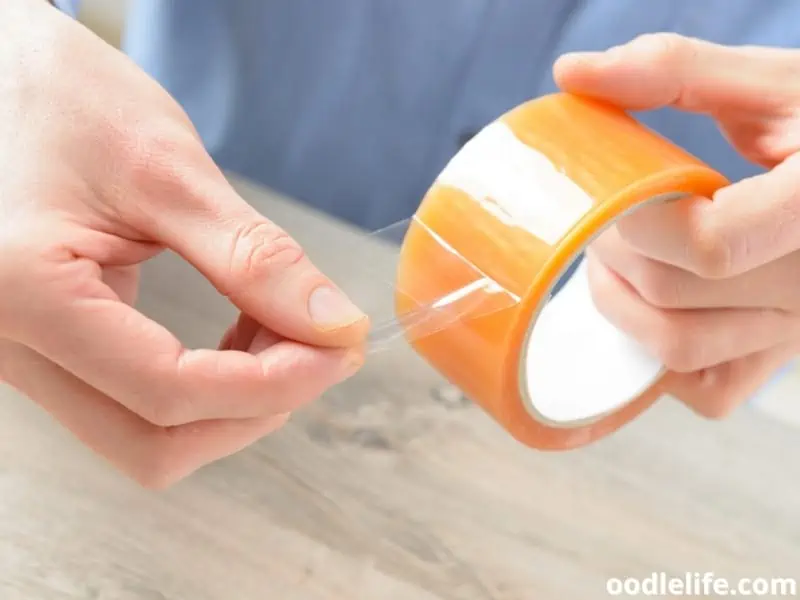
5. Wool Dryer Balls
These balls are reusable and can be put in your dryer as an alternative to dryer sheets once your clothes have been chucked in. They will loosen the fabric and make it way easier for the hair to fall off. As an alternative to wool dryer balls, you can also use a damp microfiber towel.
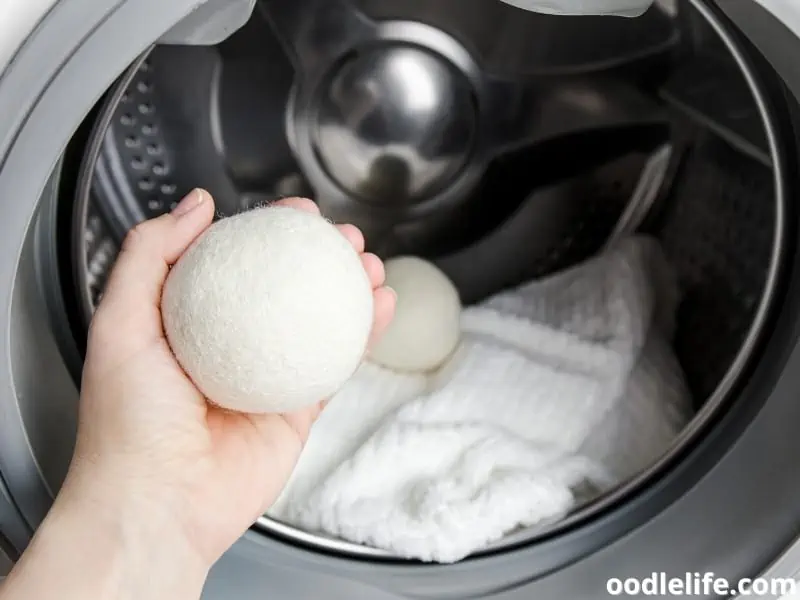
6. Latex Gloves
The sticky latex material of the gloves slides of fabric and helps separate the hair, making it easier to get off from your clothes. The gloves create a static charge that attracts the fur to them.
Simply put on a pair of gloves and run your hands over areas where your pet has shed. The fur will cling to the gloves, making it easy to remove from surfaces.
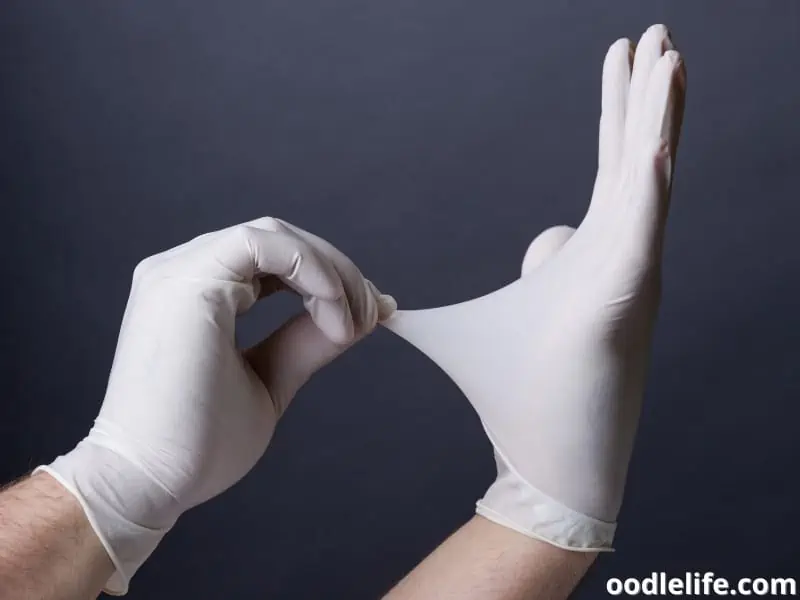
7. Fabric Brush
Depending on the fabric, you may also consider using a fabric brush. A fabric brush is actually a good way to get dog hair out of your fabric and some fabric brushes even come with a special fur remover.
8. Dry Them First
You can also run your clothes in the dryer for about 10 minutes in a cycle which will dry out your fabric and allow the hair to fall off your clothes. Once completely dry, a good shake should do it, then use a lint roller or tape to remove whatever is left.
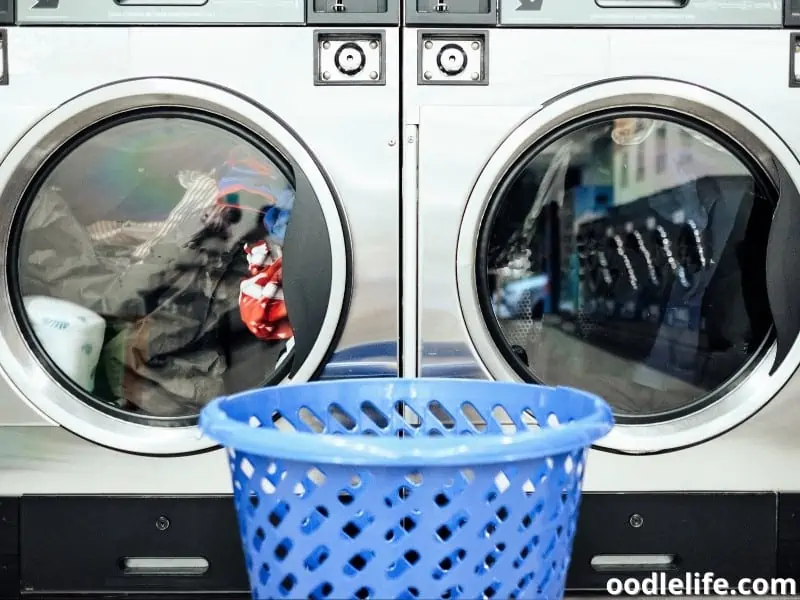
Natural Ways To Control Dog Hair
Prevention is better than cure! If you nip the problem in the bud, you can tackle it at the source and minimize the dog hair flying all around the house.
1. Brush Your Dog Frequently
There is one simple solution that can help to reduce shedding – brushing. Brushing removes loose hair from the coat before it has a chance to fall out and end up on your furniture or clothing. It also helps to distribute the natural oils in the coat, which can reduce shedding and promote healthy skin and fur.
In addition, brushing provides an opportunity to bond with your dog and helps to keep them calm and relaxed. So, if you’re tired of constantly cleaning up dog hair, try brushing your dog more frequently. It just might make a world of difference.
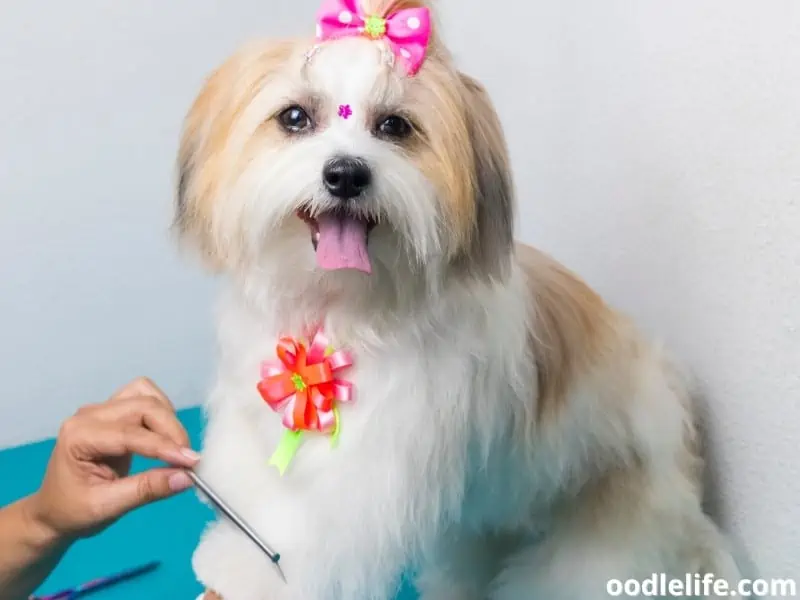
2. Use An Undercoat Rake For Thick Coats
An undercoat rake is a type of grooming tool that is designed to remove loose hair, dirt, and debris from a dog’s undercoat. The undercoat is the layer of fur that lies underneath the topcoat, and it can become matted and tangled over time.
An undercoat rake has long, teeth that are spaced closely together, which allows it to reach deep into the undercoat to loosen and remove tangles. This can help to keep your dog’s coat healthy and free of mats, and it can also help to reduce shedding.
Undercoat rakes are an essential tool for any pet owner, and they can make a big difference in the health and appearance of your dog’s coat.
While some dog owners may think that they can simply brush their pet’s coat with a regular brush, this will not remove the loose hair from the undercoat, especially on dogs with exceptionally thick hair like Huskies and Shepherds.
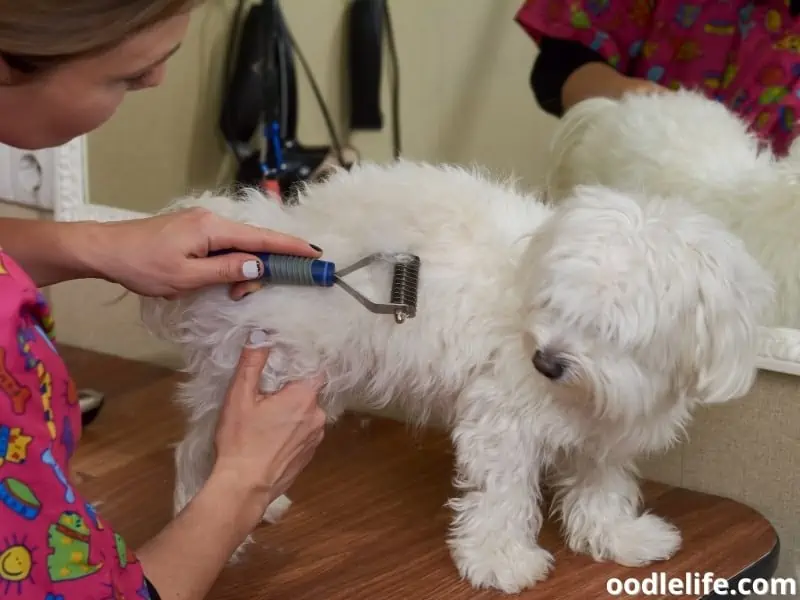
3. Use A Bed Cover
Keep the mess from your furball contained! Every pet owner wants what’s best for their furry friend, and that includes finding the perfect bed. But once you’ve found the perfect bed for your pooch, it’s important to protect it with a bedding cover.
That way, there is just one main thing to wash. Just shake out and remove all the stuck hair with any of the methods listed above, then chuck the covers into the machine and presto! No more fur!
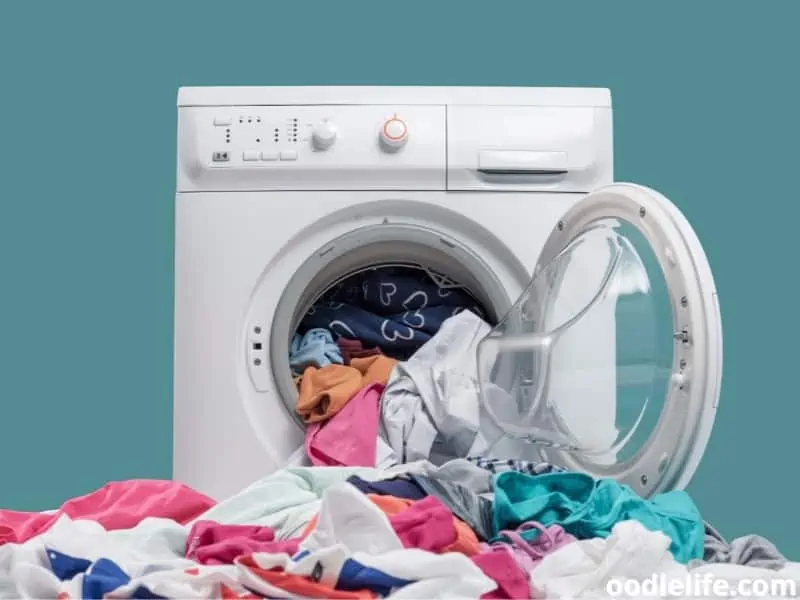
4. Regularly Clean Your Washer And Dryer
Try as you might to remove as much hair as possible before laundry day, some hair will inevitably get into your appliances. Clean the lint trap of your dryer before each cycle, and check your washing machine for any trapped hair.
Depending on the volume of dog hair on your clothes, you may sometimes need to remove dog hair from your dryer mid-cycle. This is because the lint of your dryer will absorb the hair and then blow the hair right back on your clothes.
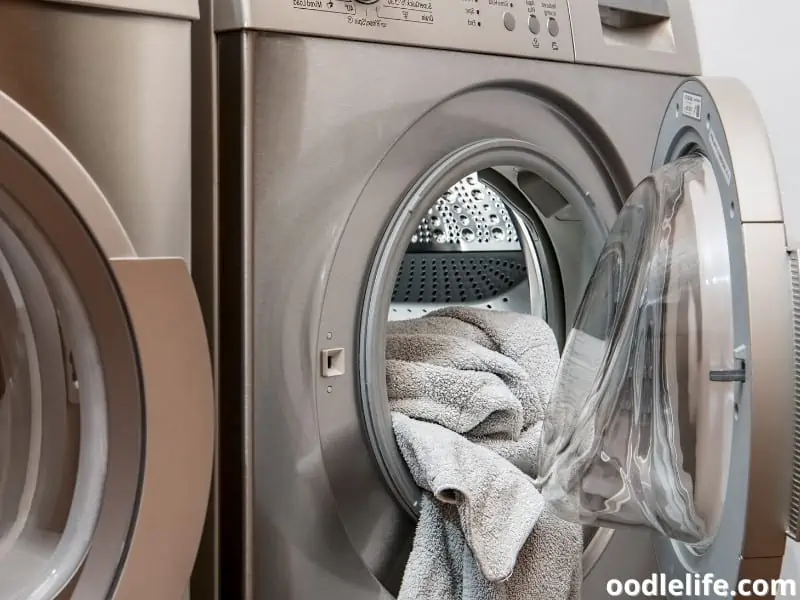
5. Separate Natural And Synthetic Fabrics
Synthetic fabrics repel dog hair while natural fabrics attract them. Washing them together will have the supercharge static of synthetic fabric causing more harm than good. Keep them separate, and wash the fur-attracting fabrics like wool and cotton together while keeping the synthetics nice and fur-free.
6. Reduce Shedding Naturally
While some dogs are naturally heavy shedders and others barely offer a strand, a few factors affect how much a dog’s shed.
A dog’s diet can have a significant impact on its shedding. Dogs that are inadequately fed are more likely to shed excessively, as their bodies try to conserve energy by shutting down non-essential functions like hair growth.
On the other hand, dogs that are overfed often have problems with obesity, which can lead to several health issues including hormonal imbalances that can cause excessive shedding. To maintain a healthy coat, it is important to feed your dog a balanced diet that provides all the nutrients it needs.
You can also think about adding a coat-friendly supplement like omega-3 to your dog’s diet. Omega-3 promotes healthy skin and coat, joint health, healthy immune function, and more. They can even help to reduce stress and anxiety levels.
Many commercial dog foods now include omega-3s, but you can also supplement your dog’s diet with fish oil or flaxseed oil.
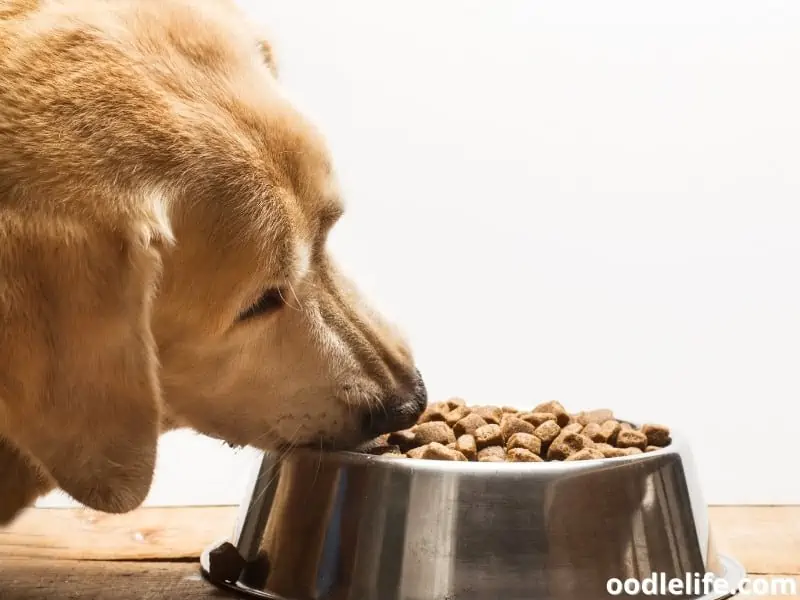
Final Thoughts
While some hair is part and parcel of the joys of dog parenthood, excessive amounts of hair can be detrimental to your health and respiratory system. And to be spitting hair out of your mouth all day or leaving your home looking as furry as your dog certainly might get bothersome after a while!
With these tips, we hope you find something that works for you and manage to control the fuzz problem. Good luck!
